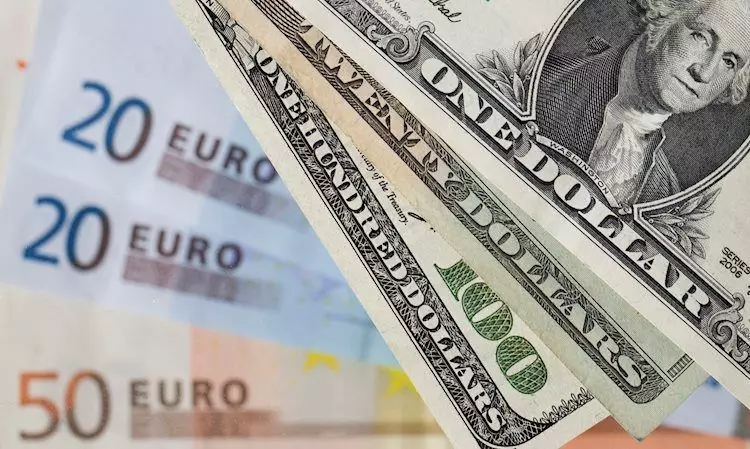The EUR/USD pair is currently trading near 1.1080 in Friday’s early Asian session. This comes after the US GDP expanded more than expected in Q2, leading to a positive impact on the US Dollar. Meanwhile, cooling inflation from Germany and Spain is supporting the case for an ECB rate cut in September, which could potentially weaken the Euro against the Dollar.
The US Gross Domestic Product (GDP) growth rate rose at an annual rate of 3.0% in the second quarter (Q2), exceeding the forecast of 2.8%. This positive economic data from the US has led to speculation that the Federal Reserve may implement a smaller rate cut in September than previously anticipated. As a result, the US Dollar has received some support in the currency markets.
The recent developments in US GDP growth have had a significant influence on the EUR/USD exchange rate. The expectation of a smaller rate cut by the Fed has boosted the Dollar relative to the Euro. Additionally, the cooling inflation in Germany and Spain has increased the likelihood of an ECB rate cut in September, further weakening the Euro against the Dollar.
The European Central Bank (ECB) plays a crucial role in managing the monetary policy for the Eurozone. The ECB’s primary mandate is to maintain price stability by keeping inflation at around 2%. In order to achieve this objective, the ECB adjusts interest rates to regulate economic activity and control inflation levels. The ECB Governing Council, which includes heads of national banks and permanent members, makes key decisions regarding monetary policy.
In extreme economic situations, the ECB can utilize a policy tool called Quantitative Easing (QE) to stimulate the economy. QE involves purchasing assets, such as government or corporate bonds, to inject liquidity into the financial system. This process typically results in a weaker Euro. On the other hand, Quantitative Tightening (QT) is implemented after QE when the economy is recovering, and inflation is rising. During QT, the ECB stops purchasing bonds and reinvesting maturing bonds, which can have a bullish effect on the Euro.
The recent US GDP growth data has had a significant impact on the EUR/USD exchange rate. The positive economic indicators from the US have strengthened the Dollar against the Euro, while the expectation of an ECB rate cut has further weakened the Euro. As the currency markets continue to react to these developments, traders will closely monitor the upcoming economic reports and central bank decisions to gauge the future direction of the EUR/USD pair.

